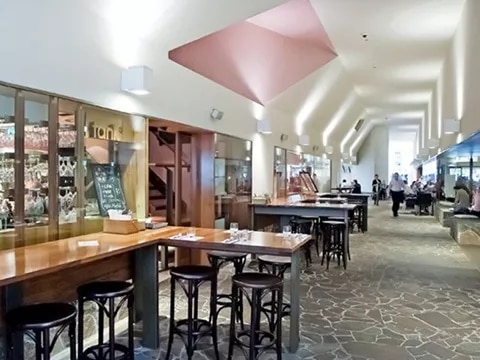Why IT Finds its Place in UAE Coworking Hubs
By Precious Alocelja

In the United Arab Emirates, the heartbeat of innovation is not confined to boardrooms high above Sheikh Zayed Road but resonates within coworking hubs where technology professionals shape solutions at the pace of global business. Once considered a niche option for freelancers, these shared work environments have matured into part of the country’s essential business infrastructure. No sector has embraced them more than information technology.
Industry analysis in 2024 found that IT companies accounted for nearly 40% of the UAE’s flexible office market, a larger share than finance, media, or professional services. This reflects structural realities: the project-based nature of IT work, financial pressures on firms, and the need to remain close to clients in a speed-driven economy.
Why IT firms thrive in coworking spaces
IT projects often run for fixed periods, involve fluctuating team sizes, and require the ability to expand or contract at short notice. A small cybersecurity review may need just two consultants for several weeks, while a regional cloud migration might demand a dozen engineers for half a year.
Securing and fitting out a conventional office for such variance is impractical. Coworking environments offer an immediate solution with that allow specialists to start working without delay. This convenience directly impacts delivery: consultants can respond to client needs as soon as contracts are signed.
Providers like Servcorp have structured their around these demands, offering enterprise-grade internet, on-site IT support, and staffed reception desks as part of the baseline.
Cost efficiency and prestigious locations
For smaller IT consultancies and independent specialists in the UAE, real estate costs often rank just behind salaries as the biggest business expense. Coworking memberships solve this challenge by reducing overheads while offering access to prestigious business addresses. Hosting a client meeting at Emirates Towers in Dubai or the World Trade Center in Abu Dhabi instantly conveys credibility and professionalism without the long-term burden of a traditional lease. This combination of cost efficiency, flexibility, and prestige makes coworking spaces in Dubai and Abu Dhabi the smart choice for IT firms looking to scale with confidence.
The difference in cost is significant. In the Emirates Financial Towers at DIFC, furnished offices in the 450–600 sq ft range command rents of around AED 250,000 to AED 300,000 per year, equivalent to roughly AED 560 per square foot annually (propertyfinder.ae). Those numbers are daunting for smaller IT consultancies that need to conserve cash for talent, tools, and project delivery rather than tying it up in fixed space.
Coworking spaces in the same premium districts bring the outlay down to a fraction of that figure. A hot desk in Dubai’s Emirates Towers through a provider such as Servcorp can be secured for about AED 890 per month, or roughly AED 10,700 per year. For clients, the address and facilities are indistinguishable from those of a firm paying full market rents, yet the consultancy avoids a long-term commitment and frees capital for growth. This balance of affordability and prestige helps explain why IT professionals have gravitated toward coworking hubs in the UAE’s most recognizable towers.
Compliance and flexibility in the UAE
The UAE’s regulatory environment makes coworking even more valuable for IT professionals and firms. Free zones such as Dubai Internet City, Dubai Multi Commodities Centre (DMCC), and Abu Dhabi Global Market (ADGM) structure their coworking packages to include trade licenses, visa processing, and essential business services. This setup allows entrepreneurs, especially those arriving from abroad, to establish themselves legally within days instead of waiting weeks or months for a traditional office lease. The positive effect is speed. For example, a software consultant relocating to Dubai or Abu Dhabi can begin operations almost immediately, which means projects start sooner, cash flow improves faster, and client relationships are not put at risk by administrative delays.
This structure lowers the entry barrier for smaller IT firms. A free zone coworking package could remove the need for heavy upfront capital, legal intermediaries, or separate contracts for visas and workspace. Independent developers and boutique consultancies can secure both a trade license and a desk in one transaction, saving time and money. The effect is stability. Smaller consultancies gain a compliant and fully recognized platform in a highly competitive market without the financial burden of a long lease. The integration of workspace with business setup services also reduces compliance risks, helping companies maintain good standing with immigration and licensing authorities.
Multinational IT providers see equally strong benefits. Many prefer to keep their engineering teams offshore in lower-cost markets such as India, Pakistan, or Eastern Europe, while still needing a local presence in the UAE for compliance and client engagement. Coworking desks in areas like DIFC, Dubai Internet City, or ADGM satisfy these requirements at a fraction of the cost of a traditional lease. The positive effects include meeting local compliance rules, honoring client contracts that demand a UAE presence, and having premium meeting spaces for workshops or presentations. Companies avoid the inefficiency of paying for large office space that may be underused, while retaining the option to scale up or down quickly as projects change. For IT providers, this flexibility translates into better capital allocation, resilience in fast-moving markets, and stronger competitiveness when bidding for contracts in the region.
Connectivity and collaboration
Coworking hubs are more than workplaces, they operate as marketplaces and communities where proximity and shared culture create opportunity. A developer might secure a contract from a health-tech entrepreneur seated across the lounge, while a systems integrator could find themselves collaborating on a fintech rollout first mentioned over coffee. The openness of these environments makes collaboration possible in ways that isolated private offices rarely do. Professionals not only share physical space but also participate in a network of peers, events, and informal exchanges that often lead to new partnerships.
Operators actively encourage this collaborative spirit by organizing networking sessions, workshops, and social gatherings that connect members across industries. These settings allow IT specialists to showcase their expertise, exchange knowledge, and find partners for projects that extend beyond their immediate contracts. The value lies not only in generating leads but also in belonging to a community that fosters learning and mutual support.
Global operators extend this advantage even further. Servcorp, for example, enables members in Dubai to reserve meeting rooms in Sydney or London under the same membership. For IT consultants accustomed to fluid, cross-regional work, this level of connectivity combines the benefits of a local collaborative community with the infrastructure of a worldwide network. The result is a workspace that functions as both a base of operations and a platform for growth.
The future of IT workspaces in the UAE
The UAE’s IT workforce is young, mobile, and thrives on flexibility. Today’s professionals expect reliable technical infrastructure, collaborative spaces, and modern design, features often missing in traditional offices. Coworking hubs deliver this mix, enhancing productivity and supporting talent retention, making them the preferred choice in a highly competitive technology-driven market.
Market data reinforces the shift. In 2024, freelancers made up 44.3% of the UAE’s flexible office market, while IT and IT-enabled services accounted for 39.7%, making them the largest user group. Coworking spaces generated 48.8% of all flexible office revenue that year, and startups expanded their demand at an 11.4% CAGR through 2030.
For IT firms, coworking offers more than desks it delivers strategic advantages. Providers such as Servcorp combined global credibility with flexible lease terms, scalable infrastructure, and premium facilities that meet the needs of tech professionals. With data showing coworking’s central role in the UAE’s office landscape, adopting these spaces is the most rational and future-proof choice for IT companies.





